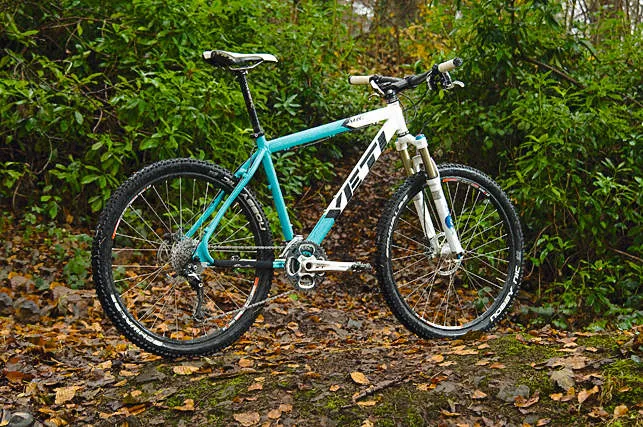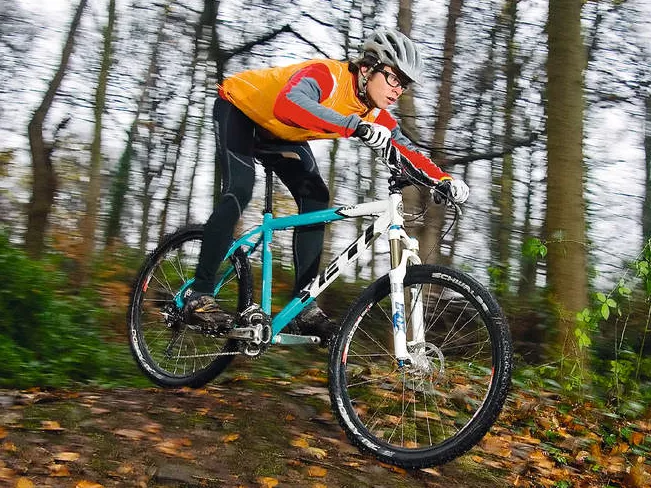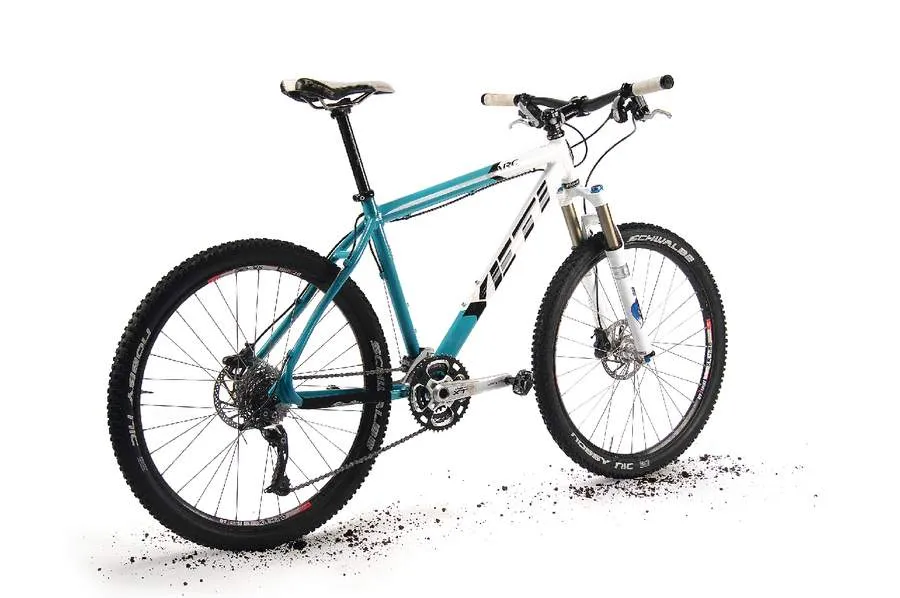There are times when you ride a bike and ask: “Why doesn’t everyone build them like this?” The Yeti ARC produced that response after the second ride.
Yes, an aluminium Yeti is a bit heavier than most of the carbon framed bikes in this price category. But it doesn’t suffer from the harsher ride of some cheaper aluminium frames, and the lower pricetag (£649 for the frame) leaves you room for some special componentry treats. We simply couldn’t find anything to moan about.
Ride & handling: One of the best hard riding aluminium cross-country frames out there
It’s only by playing around with tyres, bars and ride positions that you can make accurate comparisons between similarly priced bikes. The Yeti instantly felt at ease on muddy trails because of its wide riser bar and knobbly treads, but after trying it with faster rolling tyres and a more racy handlebar we concluded that the frame configuration had far more to do with the ride feel than we’d at first thought.
The relaxed geometry makes for the sort of confident, neutral handling that, in our minds, makes the Yeti as appealing to a demanding trail rider as it is to a racer. Handling is constantly superb; it just doesn’t seem to have any downsides.
We often got ourselves out of troublesome trail situations, especially on tricky descents, by simply letting the front end go with the flow: many pure race bikes require much more wrestling than this.

Frame: Classic looks, with Yeti's trademark 'loop' stays and a relaxed personality
Yeti were one of the first small-scale specialist frame manufacturers to make their mark in the early days of mountain biking. The first Easton tubed, aluminium framed ARC – raced by the likes of John Tomac and Juli Furtado – was launched 18 years ago and looks almost exactly the same as this model.
Complete bike weight here is 23.1lb, but even the best aluminium frames tend to be a pound or so weightier than carbon equivalents. At around 3.5lb for the medium, the ARC is lighter than most. Static geometry is fairly slack and we suspect that most riders will set it up with a fairly wide riser bar, rather than a pure race flat bar: the back sweep of a riser seems to suit the ARC’s relaxed personality.
The frame’s team-strip tubing is Yeti’s own custom ‘pure butted’ 7005 aluminium mix. The radically ovalised top and down tubes, combined with the short ring-reinforced head tube, make for a stiff high-strength main triangle with maximum weld contact points at each tubing juncture, while the distinctive single-piece looped seat and chainstays appear to slightly soften the effect of impacts through the rear wheel. There’s loads of mud drop-through room, two sets of bottle bosses and the geometry is designed to take a 100mm fork.
Equipment: Spec your own, or buy the frame and build it up yourself
Our test bike came with Fox’s RLC F Series fork up front, but Yeti’s UK distributor Evolution Imports can build it with whatever componentry you want. A Shimano XT crankset and shifters ensured reliable shifting, with an XTR mech upgrade at the rear plus XT brakes.
A lightweight wheelset with Chris King hubs, DT Swiss XR 4.20 rims and Schwalbe Nobby Nic tyres immediately gave the ARC a light and very lively ride feel, with the rubber gripping better on our filthy test trails than racier treads.
Finishing kit included a classy Thomson stem and seatpost, a comfy Yeti-badged SDG saddle and a 27in Easton MonkeyLite low rise bar. The width and slight back sweep of the bar was really appreciated by all our test riders.
Our review scoring system has changed in 2010. Therefore recent reviews may have comparatively lower scores than past reviews. Click here for a full explanation of our ratings.

